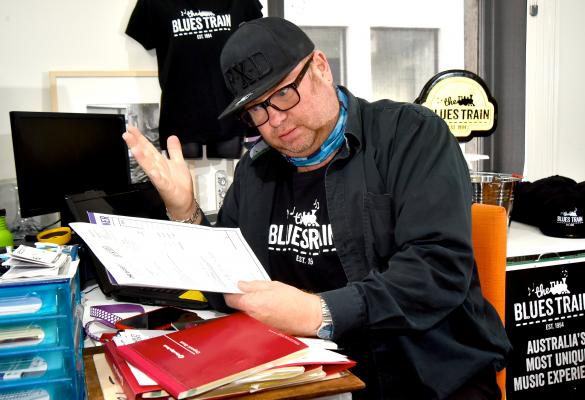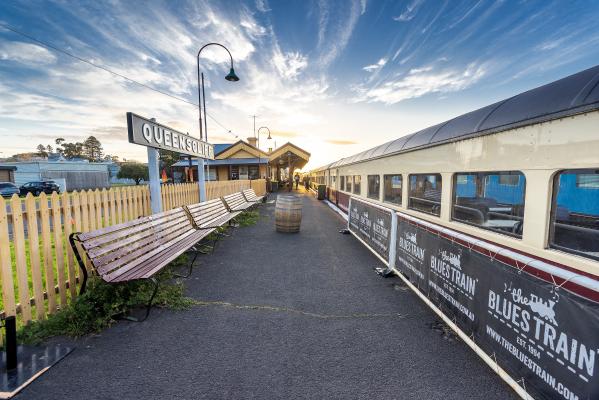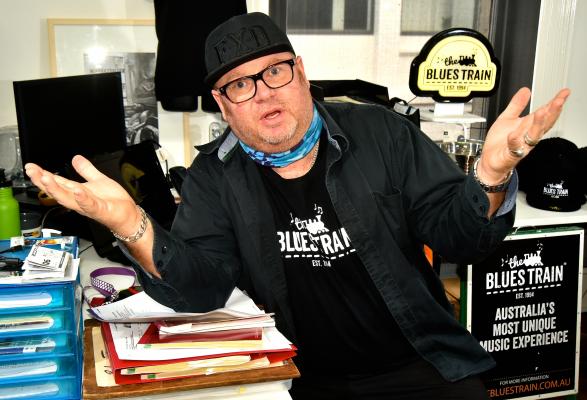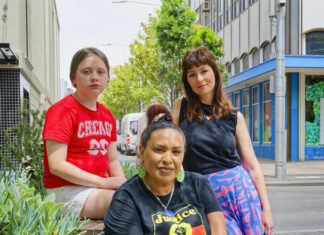A Bellarine “cultural institution” on its “knees” due to COVID-19 has launched a campaign for survival.
The Blues Train founder Hugo T Armstrong started the campaign after already pouring $20,000 of his own superannuation into the business to keep it afloat.
“It’s the toughest decision I’ve ever had to make,” he said.
“It’s not something anyone wants to do – accept other people’s money in charity.
“We had that discussion, ‘do we just quietly go, or do we put it out there for people to help the business?’”
As a music and “social gathering” businesses, The Blues Train was unable to simply “pivot” to selling merchandise or takeaway food like some, Mr Armstrong said.
What little merchandise the company sold barely covered about $10,000 a month in public liability, IT systems and other costs to keep it in “hibernation”, he said.
“The bills just keep piling up. Without JobKeeper we’d be screwed.
“You’ve got to work out what you can live without and what you can’t. Otherwise there’ll be nothing left to restart.”
Mr Armstrong founded the “cultural institution” in 1994, when he was 22, but could not start the business again from scratch at his current age, he said.
The train’s demise would have flow-on effects for local sound engineers, brewers, musicians and other professionals, he said.
“We keep our dollars local.”
The business was just one of many struggling amid a Geelong tourism black hole of at least $280 million, which the Independent revealed in July.
“A lot of people are not going to make it through and a lot of the young people these days are going to be hit with a lot of debt,” Mr Armstrong said.
“So who are the next generation of entrepreneurs?”
Planned JobKeeper cutbacks in September would hit the industry again, Mr Armstrong said.
“Surely the music and tourism industries could be exempt from JobKeeper cutbacks?”
In June, the federal government announced a $250 million Creative Economy Support Package, but of that, $50 million will go towards screen production and $35 million to Commonwealth-funded organisations, leaving $75 million for competitive grants and $90 million for government-backed loans.
“For a [$15 billion industry] you’re talking about a pool of $75 million that is accessible to the average Joe,” Mr Armstrong said.
“How are the little guys going to take a loan in this climate? It’s a joke.”
The campaign has raised $20,000 of its $70,000 target.
Details: www.gofundme.com/f/thebluestrain2020











